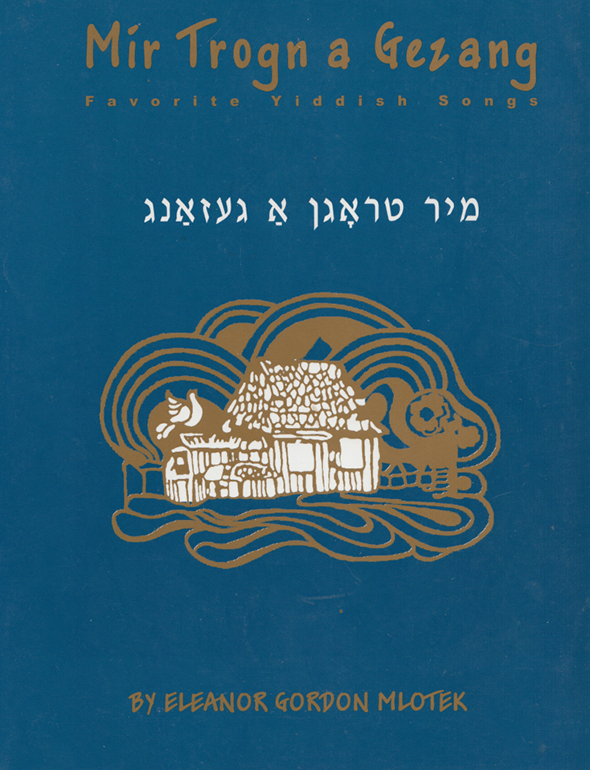Folk song, variant published in 1911 by P. Brounoff. Most of the other versions speak of other localities like Perehod, Pohost, Berdichev. The place mentioned here is the fictitious town of Kasrilevke created by the Yiddish writer Sholom Aleichem. A recording sample can be found in the Ruth Rubin Legacy Archive.

Greetings to you!
And to you!
Where are you from?
From Kasrilevke.
What’s happening that’s new
in Kasrilevke?
What’s happening is:
They drink liquor and carry on,
and they dance round and round!
Sholem-aleykhem!
Aleykhem-sholem!
– Fun vanen kumt a yid?
– Fun kasrilevke.
– Vos hert zikh epes nays
In kasrilevke?
– Es hert zikh:
Men trinkt bronfn un men hulyet
Un men geyt a karahod!
שלום-עליכם!
עליכם-שלום!
— פֿון װאַנען קומט א ייִד?
— פֿון קאַסרילעװקע.
— װאָס הערט זיך עפּעס נײַס
אין קאַסרילעװקע?
— עס הערט זיך:
מען טרינקט בראָנפֿן און מען הוליעט
און מען גײט אַ קאַראַהאָד
Song Title: Sholem-Aleykhem

First published in 1972, Mir Trogn A Gezang: Favorite Yiddish Songs was reprinted six more times (in 1977, 1982, 1985, 1987, 1988, 2000) due to popular demand. The songs in this anthology represent a sampling of beloved folk and well-known Yiddish songs, many of which are scattered in various song collections; some appear in very rare and inaccessible collections; and some were never before published. Folk songs comprise about a third of this volume and were selected mainly on the basis of popularity and sometimes for their historic significance. Needless to say, they are only representative of the vast, rich treasure of Yiddish folk material. The selection was made not only on the basis of personal preference, but in the knowledge they are favorites of many who sing these songs. Most of the songs represent the repertoire that was sung at Yiddish summer camps, May 1st demonstrations and at social gatherings. Many songs were introduced to American Jewry by Jewish immigrants who came to the United States after World War II, for whom these songs had been favorites in Poland and other East European communities destroyed by the Nazis.